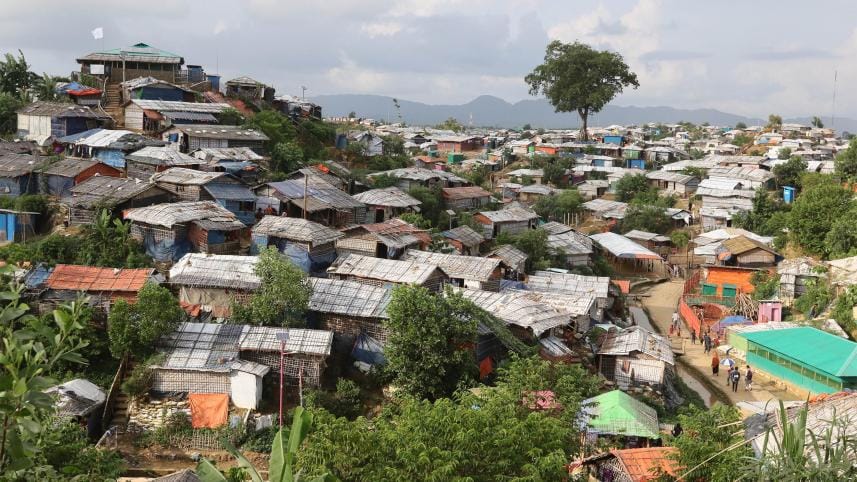No SIM card for Rohingyas

To stop Rohingya refugees from using mobile phones, the BTRC and carriers yesterday decided to halt sale of SIM cards in Ukhia and Teknaf upazilas of Cox’s Bazar until further notice.
They also decided to suspend 3G and 4G services in the upazilas between 5:00pm and 5:00am every day and make sure that signal from Bangladesh’s carriers cannot be received from Myanmar, officials said.
Since there are about 8-9 lakh active SIMs in the Rohingya camp areas, the cell phone carriers were asked to check the database of national identity cards and find out to whom the SIMs were registered.
The decisions came at a meeting between the cell phone carriers and Bangladesh Telecommunication Regulatory Commission at the latter’s office in the capital.
On Sunday, the BTRC directed all mobile phone carriers to stop selling SIMs to Rohingyas and ensure that the refugees are not provided with cell phone services.
The commission in a letter sent to the country’s four cell phone carriers asked them to inform the commission after implementing its directives in seven days.
The move comes after three teams of BTRC officials recently visited several refugee camps in Cox’s Bazar and found many Rohingyas using Bangladeshi SIM cards even though the companies are not allowed to sell mobile connections to anyone who doesn’t have an authentic national identity card.
However, through obtaining NID cards or even smart cards, the refugees were becoming eligible to buy SIM cards, officials of cell phone carriers said.
They also urged the government to check the issuance of NID cards to Rohingyas.
“It is not possible for anyone to avail a new SIM connection without proper biometric verification of an individual’s identity with the NID database. In this context, we believe that the solution to this problem lies in the proper registration and usage of individuals in the NID database,” said Shahed Alam, chief corporate and regulatory officer at Robi Axiata Ltd.
Meanwhile, government officials, requesting anonymity, said different intelligence agencies had warned the government about Rohingyas engaging in crimes using mobile phones.
BTRC Chairman Jahirul Haque told The Daily Star that mobile phone carriers would be fined if they failed to comply with the directives.
He added that the BTRC teams had collected some SIMs from the camps during their visits and found evidence that the connections were sold without proper verification.
Following directives from the telecom regulator in October, mobile carriers weakened their networks in the border areas. But that situation didn’t last long, officials said.
According to rules, mobile operators will have to pay a fine of Tk 5,000 for each SIM unregistered or registered with wrong information.
 For all latest news, follow The Daily Star's Google News channel.
For all latest news, follow The Daily Star's Google News channel.
Comments